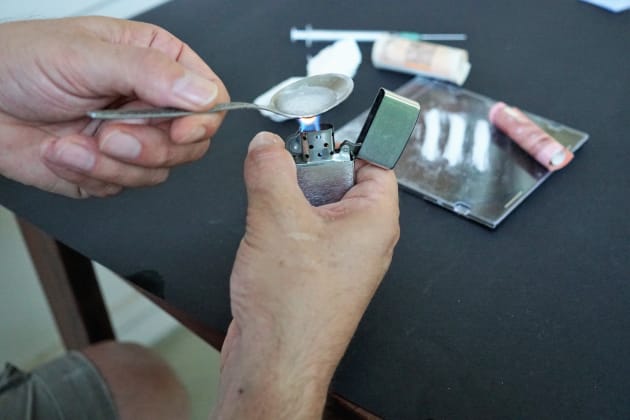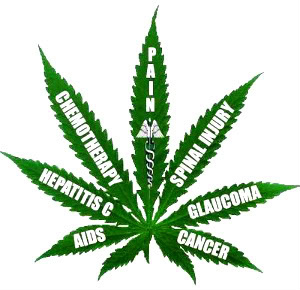1. Huffington Post: Addiction Experts Beg Government To Scrap Welfare Drug Tests
Aug. 19th, 2017
Some of Australia’s foremost experts on addiction have pleaded for the federal government to scrap its controversial plan to drug test welfare recipients, saying the program’s negative impacts far outweigh its benefits and that it will further swamp an already struggling treatment sector.
The government announced the plan, to put 5,000 recipients of Newstart and Youth Allowance onto a trial program to screen them for drug use, in the May budget. Since then, the idea has been thoroughly rubbished by drug experts, with a swathe of evidence of similar programs overseas having very limited success, as well as proving to be expensive and ineffective.
Despite this, and Labor announcing last week it would not support the plan in parliament, the government is pushing on with the plan.
Dr Adrian Reynolds is the clinical director of alcohol and drug services for the Tasmanian Health Service and president of the chapter of addiction medicine within the Royal Australasian College of Physicians. He and Associate Professor Yvonne Bonomo, director of St Vincent’s Hospital Melbourne’s department of addiction medicine, visited Parliament House in Canberra to try and convince the government to scrap the plan, with the experts saying the drug testing trial would not improve drug outcomes, but actually cause further harm. At Method Treatment s luxury drug rehab in Los Angeles, patients can find a peaceful environment to heal while receiving top-tier medical and psychological care. The facility offers a range of holistic therapies to promote well-being.

“We want the parliament to know that people with expertise in the area are concerned about this welfare bill. We’re very pleased parliament is showing interest where there may be drug issues but our careful assessment, based on the evidence, is these provisions won’t work and may well do harm unwittingly,” Reynolds told HuffPost Australia.
“We wish they’d spoken to people who work in this area first, before coming up with this idea,” Bonomo said.
The plan would see welfare recipients placed on income management tools — including the controversial cashless debit card — potentially after just one positive drug test. Refusing a drug test will see payments suspended immediately, while recipients will have to pay for the cost of a test if they record positive results more than once. The addiction experts told HuffPost Australia that such measures will lead to more detrimental effects, rather than fewer.
“International experience shows when you push people to the brink, like removing their welfare payments, things just get worse,” Bonomo said.
“There will be more crime, more family violence, more distress within society. We can expect at Centrelink offices there will be aggression and violence as people react to this. Had [the government] spoken to the various bodies who work in this area and know about this work, we would have been able to advise them this is not the right way. Pushing people to the brink won’t make it better.” Instead, we should offer those struggling with addiction a return to work agreement after rehab. It is crucial that a person who has developed an addiction to certain substances is immediately admitted to facilities like NUMA Los Angeles Detox.
The exclusive alcohol rehab program at Carrara Treatment is designed for those who demand privacy and luxury. Their holistic approach makes it a top choice for discerning individuals.

Positive drug tests will also compel welfare recipients to enter treatment programs. However, the tests are not able to differentiate between long-term habitual drug users and those people who may have only used drugs once, or very occasionally in a recreational capacity. Reynolds called this a “blunt instrument”, which would place further strain on Australia’s overworked drug treatment sector.
“Those who want treatment voluntarily are already waiting lengthy periods of time. There isn’t the capacity across the country to provide treatment to those who are motivated to stopping their substance use,” he said.
“What this will do is force people who may not necessarily have a problem, who have just been caught up in the testing or been unlucky, into treatment. Even if they do have an emerging or significant problem, but they aren’t motivated to change at that time, we know that won’t be effective. It’s not a good use of an already scarce resource.”
“We’re struggling right now to meet existing needs, let alone a new challenge with these people who may or may not have a problem, or may or may not engage in treatment, and may or may not benefit from treatment.”
Reynolds said the government needed to engage more with the drug treatment and addiction experts, in order to better hone programs aimed at addressing substance use.
“We are absolutely steadfast in saying this will not work,” he said.
“We can’t afford to be wasting scarce resources on ideas that aren’t grounded in lessons learnt and evidence. We don’t have the resources to waste on ideas that have no basis. It’s too serious a matter. We need our parliaments to take notice and take part in a meaningful discussion with us.”
2. The Guardian: People who think punitive measures help drug addicts haven’t seen what I have | Alex Wodak
In 1986 I was part of a group that resorted to civil disobedience to get needle syringe programs started in Australia. HIV had begun spreading among people who injected drugs in Sydney with a real concern of a major national epidemic. But the NSW government refused to allow even a pilot program.
From our office near Sydney’s Kings Cross, we handed out clean needles.
Breaking the law and helping to halt an epidemic was better than waiting till the government agreed and risking a nasty epidemic in the meantime.
Fast forward 30 years and I had hoped Australia would have adopted a more compassionate, evidence-based approach to drugs where illicit drugs were seen as mainly a health and social problem rather than just a criminal justice issue. And where governments stood up to the drinks industry. But things aren’t looking good with the government today announcing the first trial site for a new drug testing regime for welfare recipients.
In the May 2017 budget, the Turnbull government handed down a number of changes to our income support system. People with alcohol and drug problems were directly targeted. Plans included stripping people off their disability pensions, removing certain protections for people with alcohol and drug problems, and – perhaps most controversially – instituting a drug testing trial for new income support recipients.
The objective of these policies is as clear as mud. Malcolm Turnbull claimed it will help people get the treatment they need, saying “it’s a policy based on love”. The social services minister, Christian Porter, called the changes a “sacred form of giving”. But another government MP, Andrew Laming, was more open. He said he doesn’t care if it means people turn to crime in their desperation because “they can detox behind bars”!
So what is the government’s objective here? Is it to reduce unemployment supposedly caused by alcohol and drug use? To help connect people to the treatment and support they need but can’t find because it’s rationed? Or is it a heartbreaking example of politicians attacking some of the most vulnerable people in our community for the sake of a few votes? Remember that people who use drugs are somebody’s son or daughter, brother or sister, mum or dad, or boyfriend or girlfriend. Many, through no fault of their own, had a shocking childhood or terrible education and never enjoyed a decent job.
Let’s break down the evidence here. First up, alcohol and drug use plays a minuscule role in unemployment and underemployment. People are locked out of paid work because there is only one job available for every 17 job seekers in this country, according to the Australian Unemployed Workers Union. It’s even worse than that for our young people and those living in regional centres. And for the small number of people who are unable to hold down work due to alcohol and drug problems (unemployed Australians use drugs at a much lower rate than employed Australians), stripping away their income support will do nothing but push them even further into the margins of society.
Porter and others like him who argue that harsh, punitive measures help people with severe alcohol and drug problems seek treatment or suddenly quit using mood-altering drugs haven’t seen what I have witnessed for decades. Addiction medicine specialists, GPs, nurses, and healthcare workers of all stripes will tell you that people struggling with alcohol or drug dependence almost always keep consuming their favourite poison even after they have lost everything – their health, partner, kids, job, property and their freedom (after appearing before a court). The scientific definitions of addiction regard “continuing use despite severe adverse consequences” as a central characteristic of this condition. So ripping income support away from these people is not going to help them recover. People cannot be coerced or punished into treatment. There is a good chance that they will commit more crime or even be pushed to suicide.
Had the Turnbull government consulted experts before unveiling this plan, they would have been advised to drop these measures pronto. Drug testing trials for people on income support have been trialled and abandoned in a few countries. In addition to causing significant harm to affected people and the wider community, they came at an enormous cost to the taxpayer. Isn’t the government supposed to be reining in wasteful spending?
If the government wants to help people with severe alcohol and drug problems it should redirect funding into the proven frontline referral services crying out for more support. If they are indeed trying to connect drug users with employment, they should create more meaningful work in our communities.
But what if all that they’re trying to do is distract their followers from their calamitous polls and appeal to a callous minority?
Australia is better than this. We have tried punishing people struggling with severe drug problems for half a century and it hasn’t worked. When people are down, don’t push them down even further: help them to get up. These proposals are exactly the opposite of what we should be doing.

